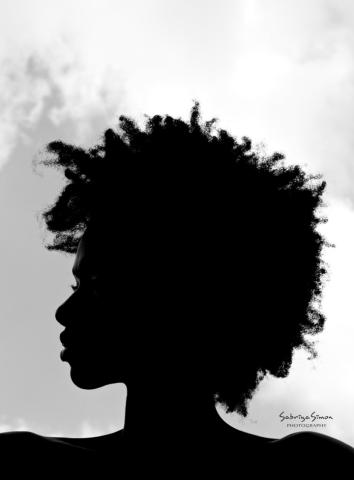Jonisha Lewinson reflects on Black History Month and the diversity of Blackness

I have a bit of a love/hate relationship with Black History Month. I love that it provides space for Black people to express their culture and highlight important (and many times, tragic) events in their history. Though, on the other hand, I also recognize that it is viewed as the only time Black people are relevant in society. Many see Black History Month as the one and only time issues and experiences pertaining to Black people should be discussed. When people participate in Black History Month, they often times see it as an “out” on acknowledging Black topics throughout the rest of the year.
The first time I was introduced to Black History Month was in middle school when my guidance counsellor (who was Black) asked me to participate in the school assembly. I knew the only reason she asked me was because I was Black, as there were only a few of us at the school. She wanted us to “represent our own.” Around the same time I was asked to present, I was struggling with my identity as a Black person. While both of my parents are Black, they grew up in England, meaning that many aspects of their culture resembled that of Europeans. So, while helping out with the assembly, my mind was opened to a new definition of what it meant to be Black. As I learned about the history and traditions of different Black people around the world, I found it more difficult to classify myself as the same thing. How could I be black if I didn’t eat Jamaican food? How could I be Black if I didn’t listen to R&B music. How could I be Black if I didn’t understand Patois? All of these questions churned in my head as I tried to pinpoint what “being Black” really meant.
Fast forward to high school, my identity issues became more complicated. I went from a school where I was the only Black girl student in the grade to being one of many Black people in the same class. At first, I was excited that I’d finally have people I could connect with on a deeper level, though I quickly realized that wasn’t the case. Being very European in nature, many of my Black peers didn’t recognize me as Black. On many occasions people would say, “Jonisha, you’re a White person in a Black person’s body,” or something along those lines. In the beginning, I’d laugh their comments away, though as time passed, their words started to affect me more, and I genuinely questioned my identity. Honestly, I still do at times.
I wish those around me, even the Black people, were educated on the robust history of Black people. I wish it was emphasized that “Black” really is just a skin tone, though society (and the effects colonization) has associated “Blackness” with specific traits. Society has created a staple definition of what a Black person is and has deemed anyone who lies outside of that definition as an outcast. We see this all the time when it comes to biracial people who grow up in environments where they are not accepted by either of their racial identity communities, which honestly, is a whole other conversation.
For the longest time, I hated being Black, and that was mostly to do with the fact that I never saw myself represented in the places that I wanted to be in. All throughout school I was fed the narrative that Canada is one of the most diverse and accepting places on the planet. Yet, when I opened my textbook, I rarely ever saw any Black people (or other people of colour) in it. How can a nation preach diversity when they refuse to acknowledge the diversity of their country?
It's not enough to have Black History Month. People use Black History Month as a way to avoid the real problems that effect Black people. While Black history month is a great tool for amplifying the voices of Black people, it is not enough to change the way the world views Black people. Western society has conditioned us to believe that White is the default. And when we truly believe that, everything that people of colour contribute to the world is either taken for granted, stolen, or eradicated.
As much as I wish there wasn’t a need for Black History Month, I appreciate the fact that it allows Black people to speak freely about their story, their history, unapologetically. I’m tired of hearing my truth being told through someone else’s eyes.
It took a while, but now I’m ready. So, hand me the mic. I got a lot to say.
The views contained within these blogs are personal and do not necessarily reflect those of The United Church of Canada.